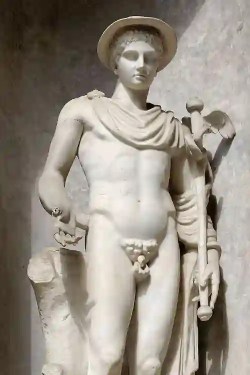The Greek Mythology is filled with interesting stories and adventures of the 12 Greek Olympian gods, and the other gods and goddesses. These other Gods include Hades, the God of the underworld, who is not considered to be one of the Olympians, and Hestia, who gave up her seat for Dionysis. Here are the 12 Greek Gods and Goddesses and their stories and history.
Greek gods and goddesses | Stories and History
Zeus

Zeus is considered to be the king of all 12 Gods of Mount Olympus. He is the God of sky and thunder. He was the son of Cronus (also spelled Kronus), the youngest of the titans, and Rhea considered the mother of all Gods. Rhea and Cronus were also siblings, but later Cronus ended up consorting her. Zeus is also notoriously known for his different sexual endeavors, through which he bore many children, some with goddesses themselves, and some with humans as well.
Hera

Hera is known to be the Goddess of women, family, marriage, and childbirth. Her parents were also Cronus and Rhea, making her Zeus’s sibling. According to many thinkers and philosophers, she is also considered to be his first wife. Together, they bore many children, including Hephaestus, Ares, Charites, etc. She is said to be the first of the Olympians to have a closed temple made for them.
Poseidon

Poseidon is the God of earth, earthquakes, sea, and horses. He is also considered the God of the sea, as he won that after defeating his father Cronus and the titans. He is the son of Cronus and Rhea, making him the brother of Zeus and Hera. He had multiple consorts, with Amphitrite and Aphrodite being the prominent ones. There are beliefs that say that Poseidon was worshipped as a horse. He is also often depicted with a trident, and was also known as the “earth-shaker”. He is also depicted as the father of Percy, in the book series Percy Jackson by Rick Riodan.
Demeter

Demeter is the goddess that looks after the grain and fertility on earth, she is the goddess of harvest and agriculture. She was also the mother to Persephone, who Zeus fathered. Her father, Cronos, swallowed her when she was a child, and she was rescued by Zeus. The seasonal cycle of farming and harvest is said to be caused by her, as her daughter Persephone was abducted by Hades in the underworld. When Zeus got Persephone back, she could not stay on earth for the entire year and had to spend six months in the underworld each year. Those are the six months where there are no crops on Earth, as Demeter refuses to let them grow when her daughter is gone.
Athena

Athena is the goddess after whom the city of Athens was named. She is the goddess of war, wisdom, and handicraft. In most arts and statues, she is shown to be wearing a helmet and holding a spear. Some myths believe that she was a child of Zeus and Metis, the daughter of a Titan Oceanus. While there are some that claim that he did not have a mother and was born from the forehead of Zeus.
Apollo

Apollo is the twin brother of Artemis, the goddess of the hunt, and the son of Zeus and Leto, a goddess and a daughter of the Titans. He is regarded as a god of music and dance, healing and diseases, truth and prophecy, the sun and light, music and dance, poetry, and many more. He is also considered to be an inventor of string music.
Artemis

Artemis is the goddess of wild animals, hunt, wilderness, nature, forests, childbirth, chastity, the Moon, vegetation, etc. Myths say that Hera did not allow Leto, Artemis’ mother to give birth anywhere on Earth. Only the island of Delos was a safe space for Leto to give birth to her children. Artemis is said to be the firstborn amongst her and her twin brother, Apollo. She was also worshipped as a goddess of midwifery and is also known to be a protector of young children, especially young girls.
Ares

Ares is the god of courage and war. He is said to symbolize sheer physical valour and the need to succeed in war, unlike his sister Athena, the goddess of war, who is known for planning and strategizing before the war. He was the son of Zeus and Hera. He is only said to have a few temples of worship for him and is also shown to be chained in some of the statues.
Hephaestus

Hephaestus is the god of volcanoes, sculpture, blacksmiths, carpenters, craftsmen, metalwork, artisans, metallurgy, and fire. In many myths, he is considered to be the child of Zeus and Hera, while in some it is said that he is the parthenogenesis son of Hera herself.
Aphrodite

Aphrodite was the goddess of procreation, passion, pleasure, beauty, love, and lust. She is considered the wife of Hephaestus, the god of blacksmiths. However, she was not faithful in her marriage and had multiple other lovers. She was also once caught being unfaithful with Ares. She is still seen as a symbol of beauty.
Hermes

Hermes is the herald of the Olympic gods. He is also the protector of human heralds, thieves, merchants, travellers, and orators. Hermes is known as the god of cunning, wit, speed, commerce, athletes, and sleep. He is known as the mischievous God. Zeus and Maia are said to be his parents.
Dionysus

Technically, Dionysus is known to be the twelfth Olympian, as Hestia gave up her throne for him. He is the god of the grape harvest, theatre, religious ecstasy, festivity, insanity, ritual, etc. His father is said to be Zeus, but there is no certainty as to who his mother was.
Also Read: Top Villains Of The Greek Mythology | villainous characters


















